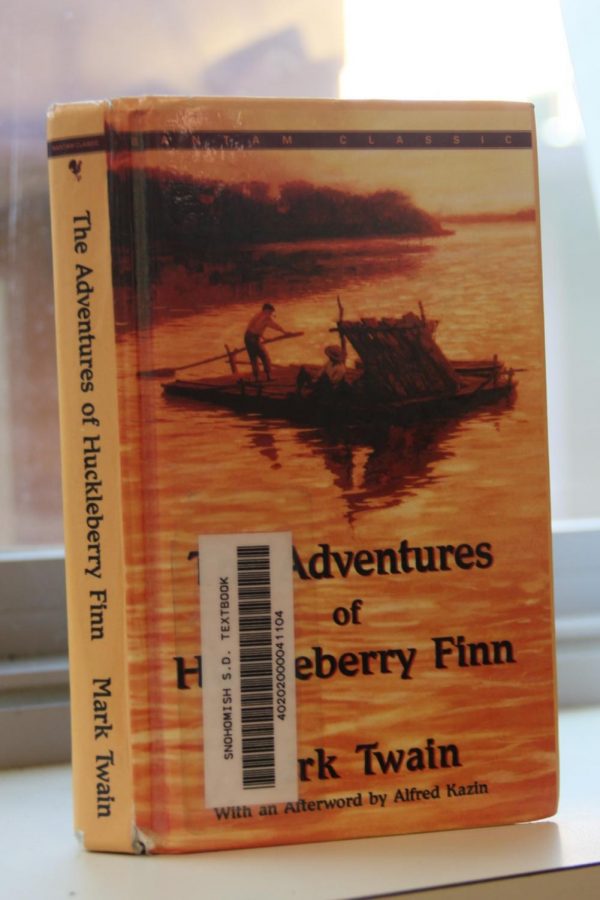What’s Up With Huck?
November 1, 2017
The word once used to devalue human life, today lightly passed around from friend to friend. It fills our ears with each trap song we hear and fills our mouth with each word we sing. Don’t get me wrong, I’m not bashing anyone’s music choice because I’m hip and I keep up with these latest bops too, but we as generation need to stop and think about we’re really saying.
If you’re reading this and you’re a junior, there’s a good chance the topic of racism in your English class has recently come up. The book we’re starting to read, Huckleberry Finn, is about a young boy in the 1840s, who runs away from home and floats down the Mississippi River. He meets a runaway slave named Jim and the two undertake a series of adventures based on the picturesque novel by Mark Twain. It’s widely considered one of the greatest novels in American history.
This year, several school districts around the nation are banning the book from being read. Because of its abuse of the ‘n word’, this book has caused controversy for many years. The word is said throughout the novel 219 times. A publishing company “solved” the issue by locally publishing books that replace it with “slave”. Some argue this changes the meaning of the book. The actual definition is; a contemptuous (mocking, or, disrespectful) term for a black or dark-skinned person.
Schools are also reciprocating the same thing with the book To Kill A Mockingbird, typically read by Sophomores. In my opinion, my English class is handling this sensitive topic in a very mature matter. We’ve agreed on skipping over the word or just saying “n-word” because the last thing any of us want to do is offend our classmates. Some people admitted to saying the word, and using the words with both their white and black friends. After 200 hundred years, no matter how the word is used, you can’t shake off the negative connotation. People who aren’t of color do not/nor have they ever had the right to use the word in any context because it is ignorant to believe that the word is powerless and won’t hurt/offend anybody.


